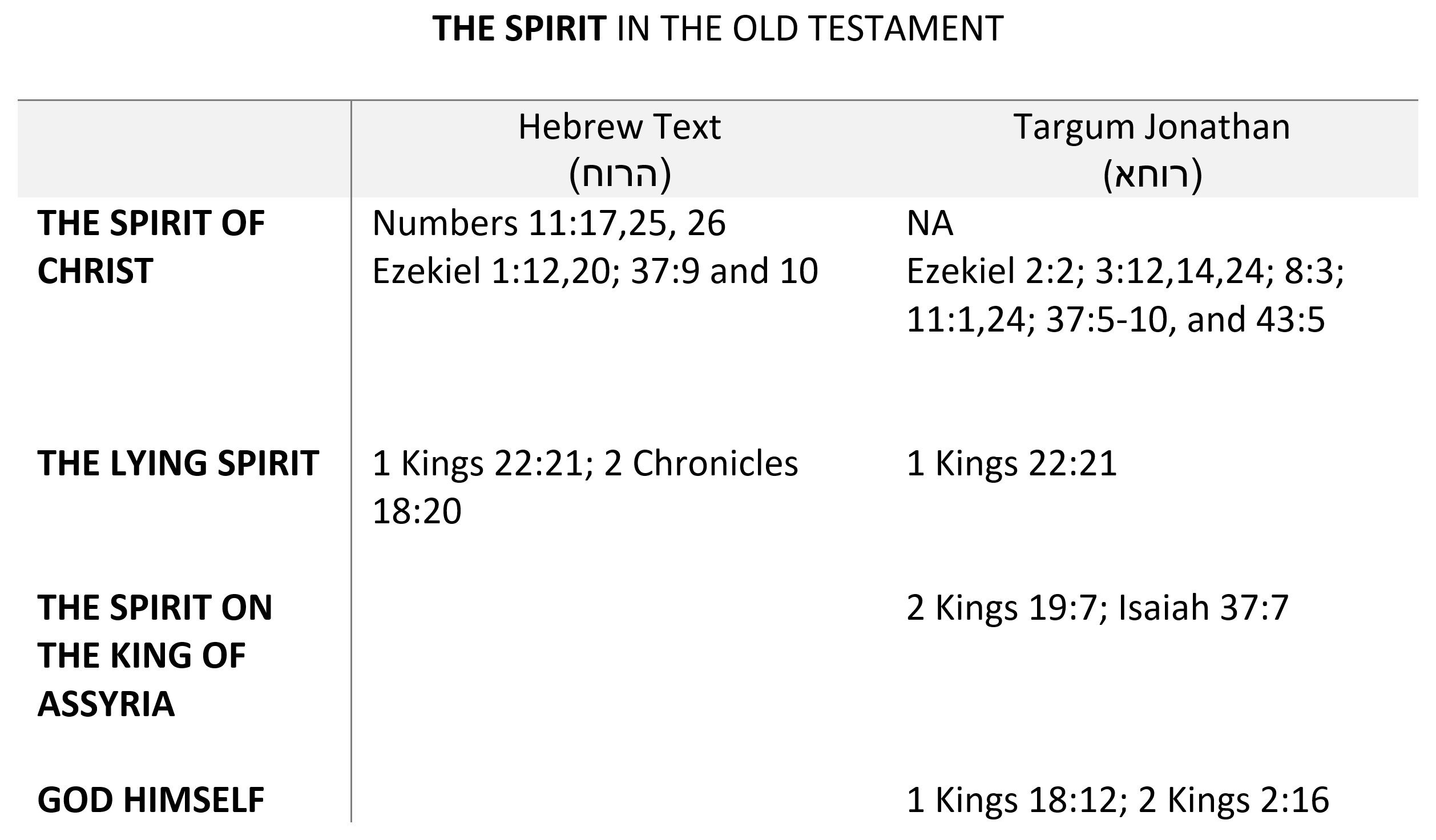Before the Nicene Creed of 325, all believers knew that there were two holy spirits in the Bible: The Word, and the spirit of prophecy. Over the next 20 sections we are going to look at the Bible’s distinction of these two spirits, which begins with the grammar.
The grammar of the Bible distinguishes the Spirit of Christ from the spirit of God.
In the New Testament, classical Greek requires the writer to align the gender of the pronouns with the gender of the word being described. The word “helper” in Greek is masculine, and there are about four uses of the pronoun “He” to describe the Helper in John 14 to 16. But these only describe the word “Helper,” which is masculine. 1For a complete discussion of John 14:26; 15:26; 16:7-8, and 13-14, see Daniel B. Wallace, Greek Grammar and the Personality of the Holy Spirit.

The holy spirit poured out on the Day of Pentecost was not a person. The Hebrew Old Testament used feminine pronouns to describe three spirits that proceeded from God. The “ruah of ELOHIM” described the breath of God, the spirit of God in wisdom, and the hand of Yihvah on the prophets.
The Targumim called the hand of Yihvah, “the spirit of prophecy.”
While feminine pronouns described the spirits that proceeded from God, a masculine pronoun described God Himself. David said,
“The Spirit of Yihvah He spoke through me,
and His Word was on my tongue”
2 Samuel 23:2
His Word was His Messenger, the Holy Spirit in the mouth of the prophets.2In 1 Kings 22:21-22, a Spirit stepped forward and agreed to be a lying spirit in the mouth of all Ahab’s prophets. In Isaiah 40:13, Targum Jonathan called the Spirit of Christ, “the Holy Spirit in the mouth of all the prophets”
The hand of Yihvah was a spirit of power described by the verbs “clothed,” “rushed” and “fell.” The holy spirits, the Spirit of Christ in Numbers 11, and the spirit of God on Christ, were described by the verb “rest.”
The expression “the spirit” with the definite article described a Spirit as a being. It described the lying spirit of Yihvah in the mouth of Ahab’s prophets, and the spirit of Christ in Numbers and Ezekiel. 3Targum Jonathan uses the determined form of Aramaic (רוחא vs. רוח) to describe the Spirit of Christ in Ezekiel 2:2; 3:12,14,24; 8:3; 11:1,24; 37:5-10, and 43:5; the “lying Spirit of Yihvah” in 1 Kings 22:21; the Spirit on the King of Assyria in 2 Kings 19:7, and Isaiah 37:7, and God himself in in 1 Kings 18:12, and 2 Kings 2:16.

So, Paul said, “the Lord is the Spirit” and the Spirit of Christ was called “the Spirit” throughout the New Testament.
Jesus described David being “in spirit.” Throughout the Bible, the expression “spirit” without the article described the anointing of the holy spirit. Before the Day of Pentecost, it described the Spirit of Christ, and the spirit of God on Christ. After the Day of Pentecost, it described the spirit of God in His Church.
|
“spirit” always describes the holy spirit
|
In Matthew 28:19, the article was first used in the expression ἁγίου πνεύματος to describe the spirit of God as the only holy spirit in His Church.4The Greek language does not have a definite article. It has an “article” which may sometimes function as a definite article. The expression τοῦ Πνεύματος τοῦ ῾Αγίου (the spirit, the holy) does not imply definiteness. The expression τοῦ ῾Αγίου Πνεύματος does imply definiteness and first appears with the article in Matthew 28:19. It is also used with the article in Jesus’ warning of Luke 12:10, and otherwise only in Acts 1:8; 2:38; 4:31; 9:31; 10:45; 13:4; 16:6; and 2Cor 13:13. For more about the Greek article, see Greek Grammar beyond the Basics, 1996, by Daniel B. Wallace, page 209-210.
References
